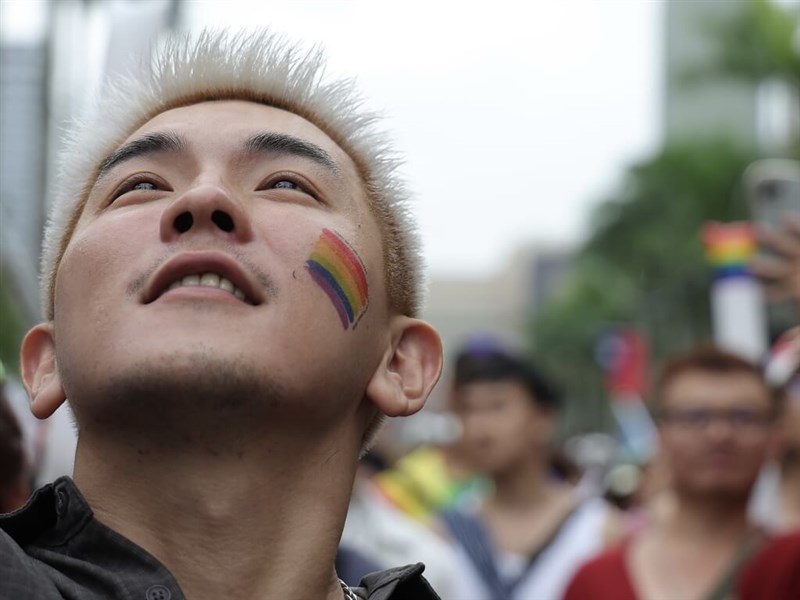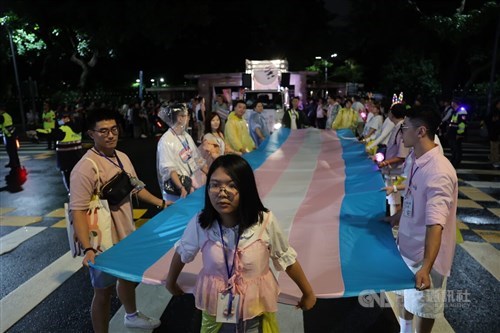LGBTQ RIGHTS/Single, gay women a top priority in amending reproductive rights law: Group
01/17/2024 04:02 PM
An LGBTQ advocacy group has urged the government to prioritize the reproductive rights of single women and lesbian couples as the Ministry of Health and Welfare prepares to amend the Assisted Reproduction Act.
(Full text of the story is now in CNA English news archive. To view the full story, you will need to be a subscribed member of the CNA archive. To subscribe, please read here.)
More in LGBTQ RIGHTS
![150,000 join Taiwan Pride as organizers urge understanding]() 150,000 join Taiwan Pride as organizers urge understandingAround 150,000 people attended Taiwan Pride on Saturday, with organizers and participants expressing hope that the parade would help build understanding amid a growing global backlash against diversity, equity and inclusion (DEI).10/25/2025 06:50 PM
150,000 join Taiwan Pride as organizers urge understandingAround 150,000 people attended Taiwan Pride on Saturday, with organizers and participants expressing hope that the parade would help build understanding amid a growing global backlash against diversity, equity and inclusion (DEI).10/25/2025 06:50 PM![3,000 march in Taipei to support transgender community]() 3,000 march in Taipei to support transgender communityAn estimated 3,000 people marched on the streets of Taipei at the 2025 Taiwan Trans March on Friday night to show support for the community, according to the organizer, Taiwan Tongzhi (LGBTQ+) Hotline Association.10/24/2025 10:19 PM
3,000 march in Taipei to support transgender communityAn estimated 3,000 people marched on the streets of Taipei at the 2025 Taiwan Trans March on Friday night to show support for the community, according to the organizer, Taiwan Tongzhi (LGBTQ+) Hotline Association.10/24/2025 10:19 PM![Taiwanese group joins Berlin Pride Parade]() Taiwanese group joins Berlin Pride ParadeA group of Taiwanese people took part in Berlin's annual Pride parade on Saturday, joining hundreds of thousands of participants in one of Europe's largest LGBTQ+ events.07/28/2025 06:06 PM
Taiwanese group joins Berlin Pride ParadeA group of Taiwanese people took part in Berlin's annual Pride parade on Saturday, joining hundreds of thousands of participants in one of Europe's largest LGBTQ+ events.07/28/2025 06:06 PM
Latest
- Politics
Lai government to seek constitutional ruling on pension reform bill
12/26/2025 10:22 PM - Politics
Cabinet aims to tighten rules on lawmaker, civil servant China visits
12/26/2025 09:33 PM - Society
Man detained after sickle attack in Miaoli
12/26/2025 09:20 PM - Politics
Taiwan's Legislature passes basic law on youth affairs
12/26/2025 09:14 PM - Business
Taiwan set to open 1st overseas recruitment center
12/26/2025 09:07 PM


